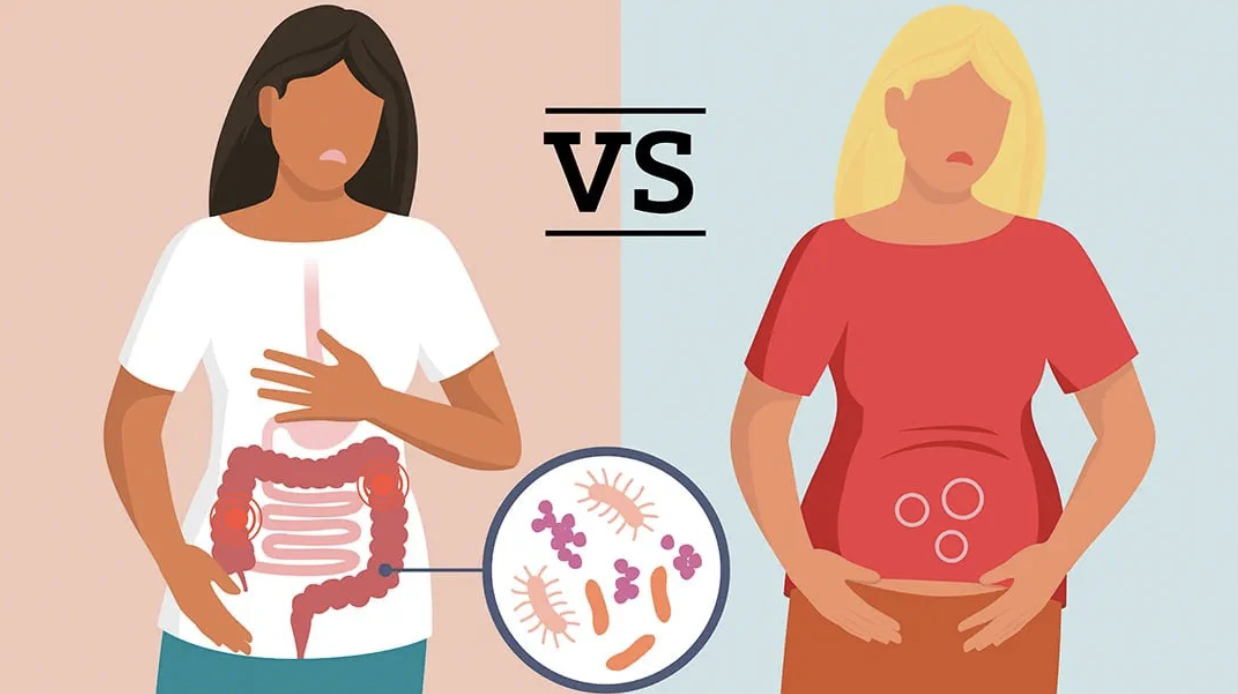Irritable bowel syndrome (IBS) and inflammatory bowel disease (IBD) are the two most commonly confused digestive problems. Both conditions affect the stomach, intestines, and esophagus, and are usually considered the same. However, they are different from each other. It is vital to get an accurate diagnosis so that you can be treated for the condition you have.
Read below to understand the differences between the two:
What is IBD?
Inflammatory bowel disease, or IBD, refers to the inflammation of the gastrointestinal tract. The condition begins at the mouth and extends through the stomach, intestine, and the anus. It is a long-term problem with no cure. However, you can meet a gastroenterologist and manage their symptoms. IBD has two types—Crohn’s disease and ulcerative colitis.
Crohn’s disease may affect any part of the gastrointestinal tract, most commonly the small intestine. It may lead to patches of inflammation damaging multiple layers of the wall of the GI tract. On the other hand, ulcerative colitis causes inflammation of the colon. The inflammation is continuous, which can affect your quality of life on many levels.
The exact cause of IBD is not known. However, as per researchers, it may be the result of a problem with the immune system, and can run in families.
What are the Symptoms of IBD?
1. The most common symptoms of IBD include bloody stools and rectal bleeding, diarrhea, sudden urge to have bowel movements, abdominal pain or cramps in the abdomen, half-emptied bowels, and unintended weight loss.
2. Other symptoms of the condition include chronic constipation, loss of appetite, fever, nausea, joint pain, night sweats, and feeling of tiredness.
3. These symptoms may vary from person to person and may be triggered by external elements such as infection, smoking, and autoimmune changes.
How are IBD and IBS Diagnosed?
If you experience the above-listed symptoms, it is advisable to visit a gastroenterologist to diagnose the condition and find a suitable treatment. The gastroenterologist will take a comprehensive medical and family history to understand the symptoms of your condition and categorize them under IBS or IBD. For instance, if you have been experiencing significant rectal bleeding, you are more likely to have IBD than IBS.
The gastroenterologist will run the following diagnostic tests to confirm the condition:
1. Stool test to check for inflammatory markers associated with inflammation in the gut. It is a primary sign of IBD. Stool tests are equally accurate in ruling out IBS.
2. Imaging tests accompanied by a colonoscopy to look for inflammation. Not every case requires a colonoscopy. In some cases, imaging tests are enough to confirm the diagnosis.
What are the Treatment Options for IBD and IBS?
IBD is a more serious condition and requires regular check-ups. On the other hand, IBS can be managed properly with lifestyle changes. Once the diagnosis is clear, the gastroenterologist will suggest a suitable treatment option for your condition.
In many cases of IBS, the patients do not need strong medication. The goal is to reduce the symptoms and make bowel movements regular. The gastroenterologist will advise you to do the following:
1. Consume smaller and regular meals
2. Drink more water
3. Avoid gas-forming foods and excessive dairy products
4. Control stress through yoga or counselling
5. Exercise regularly or take daily walks
6. Take stool-softening medicine to allow smooth passing of stools.
In case of IBD, your treatment plan may be longer with strong medication to reduce gut swelling. It includes the following:
1. Biologics or advanced injections
2. Immune-blocking drugs
3. Nutritional support from a dietician
4. Iron, calcium, and vitamin supplements
5. Surgery in the worst-case scenario
6. Regular colonoscopy to check the colon.
Takeaway
Gut health implies more than smooth digestion and affects how you feel, eat, and live your life. Both IBD and IBS are serious in their own ways. While one affects the movement of the bowel, others may lead to damage inside the gut. Both conditions need proper care and treatment by a professional.




